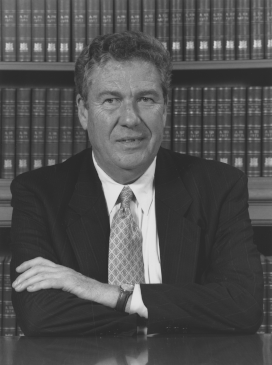Alan Walker (anthropologist) facts for kids
Quick facts for kids
Alan Walker
|
|
|---|---|
 |
|
| Born | 23 August 1938 Leicester, England
|
| Died | 20 November 2017 (aged 79) |
| Alma mater | University of Cambridge, University of London |
| Known for | Fossil discoveries in Kenya |
| Scientific career | |
| Fields | Paleontology |
| Thesis | Locomotor adaptations in living and extinct Madagascan lemurs |
| Influences | John R. Napier, Louis Leakey and Phillip Tobias |
Alan Cyril Walker (born August 23, 1938 – died November 20, 2017) was a famous British scientist. He was a paleoanthropologist, which means he studied ancient humans and their ancestors through fossils. He taught at Pennsylvania State University and worked as a researcher for the National Museum of Kenya. He is best known for finding important fossils in Kenya that helped us understand human evolution.
Contents
A Life of Discovery
Early Life and Education
Alan Walker was born in Leicester, England. He went to University of Cambridge and earned his first degree in 1962. Later, he received his PhD from the University of London in 1967. Years later, in 2000, the University of Chicago gave him an honorary science degree.
Amazing Discoveries
Alan Walker was a key member of a team led by Richard Leakey. In 1984, this team made a huge discovery: the almost complete skeleton of a young human ancestor, known as the Turkana Boy. This fossil helped scientists learn a lot about how early humans grew and moved.
The very next year, in 1985, Alan Walker himself found another very important fossil. This was the Black Skull, discovered near Lake Turkana in Kenya. This skull belonged to a different kind of early human ancestor and added more pieces to the puzzle of human evolution.
Top Awards and Honors
Alan Walker received many important awards for his work.
- In 1988, he was given a MacArthur Fellowship. This is often called a "genius grant" because it's given to very talented people in different fields.
- In 1997, he won the Rhône-Poulenc Award from the Royal Society for his book, The Wisdom of the Bones. The judges were very impressed by how he used many different sciences to solve the mystery of the million-year-old Turkana Boy.
- The next year, he received the International Fondation Fyssen Prize in Paris.
He was also chosen to be a member of several important scientific groups:
- The American Academy of Arts and Sciences in 1996.
- A Fellow of the Royal Society in 1999.
- The United States National Academy of Sciences in 2003.
Just before he passed away, in 2017, he received the Charles R. Darwin Lifetime Achievement Award. This award recognized all his amazing contributions to the study of human evolution throughout his career.
See also
- List of fossil sites
- List of hominina (hominid) fossils
 | Jewel Prestage |
 | Ella Baker |
 | Fannie Lou Hamer |

